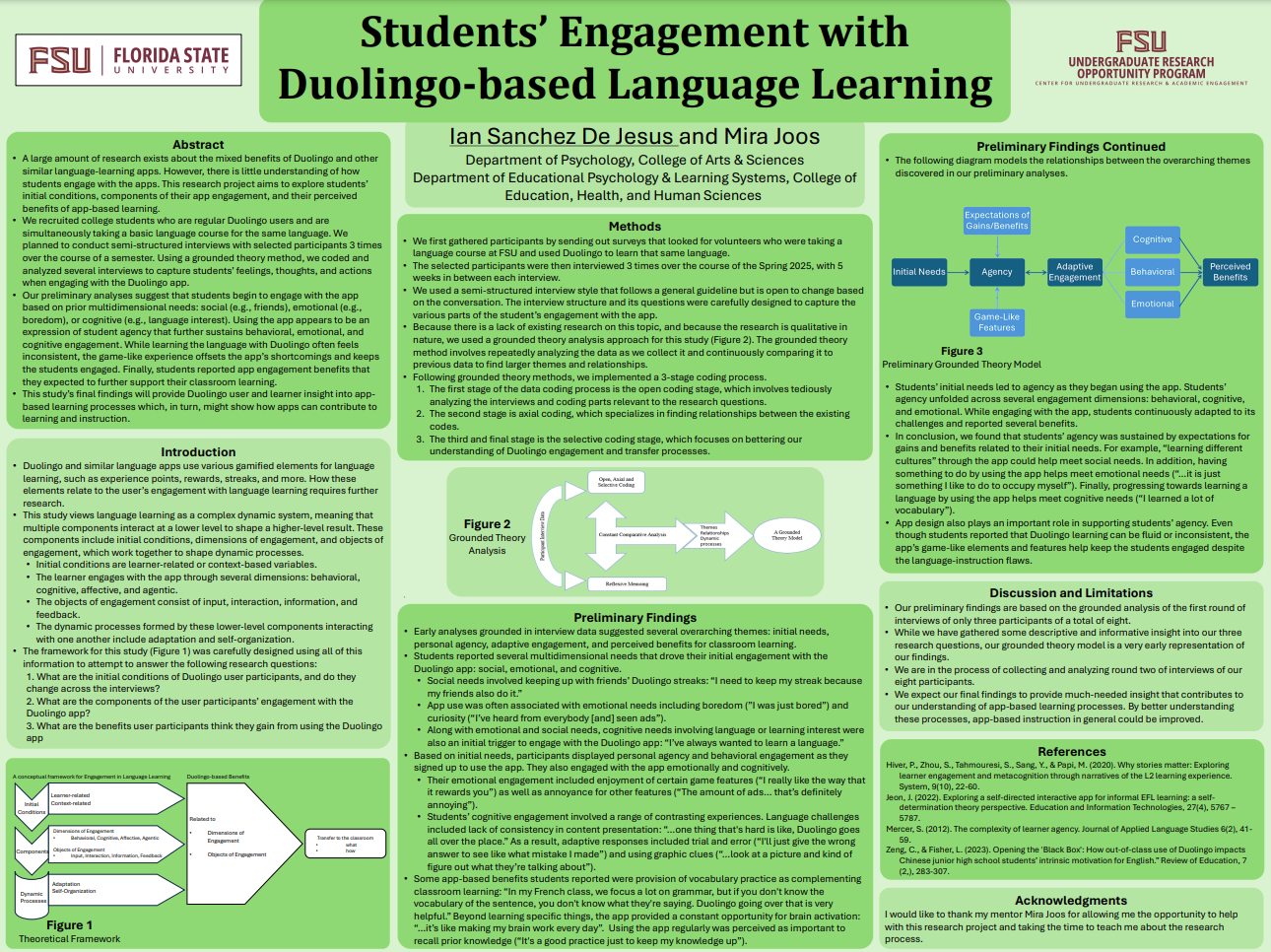Research Symposium
25th annual Undergraduate Research Symposium, April 1, 2025
Ian Sanchez De Jesus Poster Session 4: 3:00 pm - 4:00 pm/ Poster #86

BIO
My name is Ian Sanchez De Jesus and I’m a first-year psychology major from Gulf Breeze, Florida. I have a general interest in all fields of psychology, but I am especially interested in social psychology, both as a research interest and as a future career field. I love learning about how different social situations can affect people at the individual level. My goal is to continue learning about this and being involved in research to further my own knowledge and also contribute to our overall understanding of social psychology.
Students’ Engagement with Duolingo-based Language Learning
Authors: Ian Sanchez De Jesus, Mariana Talpau JoosStudent Major: Psychology
Mentor: Mariana Talpau Joos
Mentor's Department: Department of Educational Psychology & Learning Systems Mentor's College: College of Education, Health, and Human Sciences Co-Presenters:
Abstract
A large amount of research exists about the mixed benefits of Duolingo and other similar language-learning apps. However, there is little understanding of how students engage with the apps. This research project aims to explore students’ initial conditions, components of their app engagement, and their perceived benefits of app-based learning. We recruited college students who are regular Duolingo users and are simultaneously taking a basic language course for the same language. We planned to conduct semi-structured interviews with selected participants 3 times over the course of a semester. Using a grounded theory method, we coded and analyzed several interviews to capture students’ feelings, thoughts, and actions when engaging with the Duolingo app. Our preliminary analyses suggest that students begin to engage with the app based on prior multidimensional needs: social (e.g., friends), emotional (e.g., boredom), or cognitive (e.g., language interest). Using the app appears to be an expression of student agency that further sustains behavioral, emotional, and cognitive engagement. While learning the language with Duolingo often feels inconsistent, the game-like experience offsets the app’s shortcomings and keeps the students engaged. Finally, students reported app engagement benefits that they expected to further support their classroom learning. This study’s final findings will provide Duolingo user and learner insight into app-based learning processes which, in turn, might show how apps can contribute to learning and instruction.
Keywords: Duolingo Engagement Language Learning


